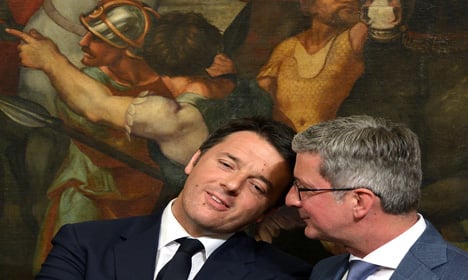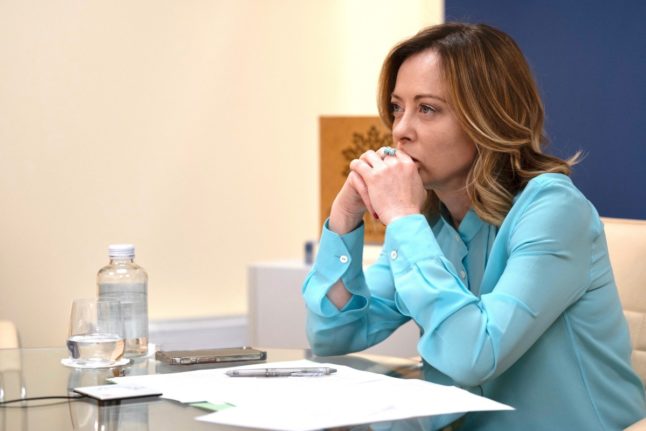Twenty million voters are to elect governors in seven of the country's 20 regions, as well as the mayors of more than 1,000 municipalities.
This polling battle is the first in Italy, which is slowly emerging from recession, since European elections a year ago in which Renzi's centre-left Democratic party (PD) won with just over 40 percent of the vote.
Observers will also be looking closely at the battle on the right between the anti-immigration Northern League, led by rising star Matteo Salvini, and Forza Italia (Go Italy), the party of former prime minister Berlusconi.
A key test for the premier will come in the northern region of Liguria, where the PD's candidate faces rivals in both a left-wing dissident and the right-wing Giovanni Toti, supported by both the Northern League and Forza Italia.
At present, five of the seven regions holding elections are governed by the left, one is led by the League and another by Forza Italia.
In Campania in the south, the PD's candidate Vincenzo De Luca, fighting the Forza Italia incumbent, has been named in a list of 17 “unpresentable” candidates by an anti-mafia commission.
De Luca has a conviction for abuse of power and faces trial on other charges, including fraud, and could be banned from taking office.
Although an embarrassment for Renzi, the 40-year-old premier's popularity appears to remain high after nearly a year and a half at the helm.
PM 'only serious offer'
“The alternatives to Renzi are not very attractive, he remains the only serious political offer,” said Giovanni Orsina, political scientist at the Luiss University in Rome.
The betting odds suggest a score of 6-1 to the Italian left, with wide expectations that Veneto in the northeast will remain with the League, or 5-2 or even 4-3.
“4-3 for us football fans evokes fond memories,” said Renzi recently, referring to the result of the semi-final of the 1970 World Cup won by Italy against West Germany.
Such a result would however be a disappointment for Renzi, and his supporters have been playing down the importance of the polls.
“The next regional elections are neither a test nor a thermometer for the government. The European elections last year were not, the regionals today are not,” said Luca Lotti, a member of Renzi's cabinet.
Italy's regional elections have ended badly for premiers in the past — Massimo D'Alema, leader of a leftist government, resigned after defeat in regional polls in 2000.
This weekend's election is also crucial for three-time premier Berlusconi, 78, the billionaire media magnate keen on a political comeback after his acquittal of paying for underage sex and a stint of community service for tax fraud.
“If Berlusconi records really bad results, this might be his political end,” Orsina told AFP.



 Please whitelist us to continue reading.
Please whitelist us to continue reading.
Member comments